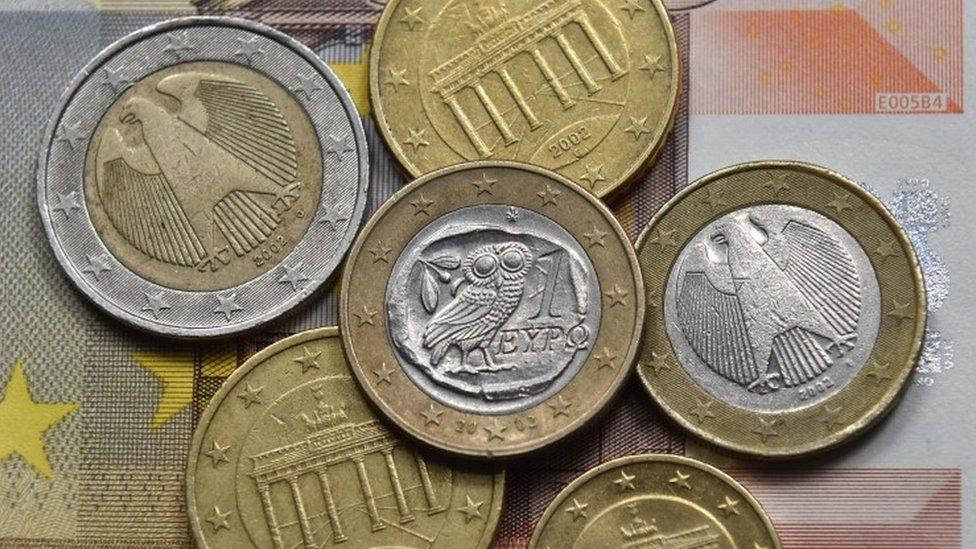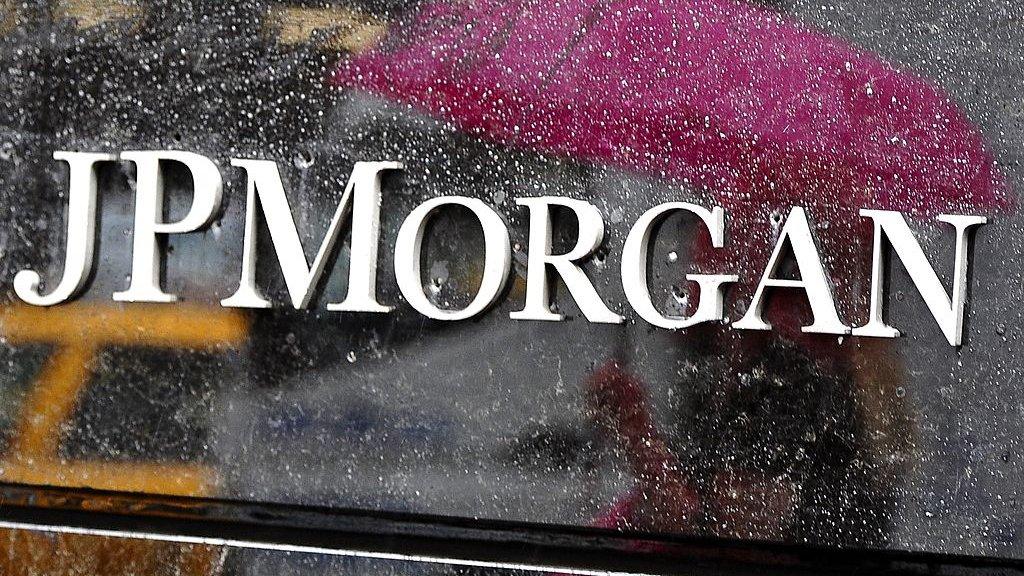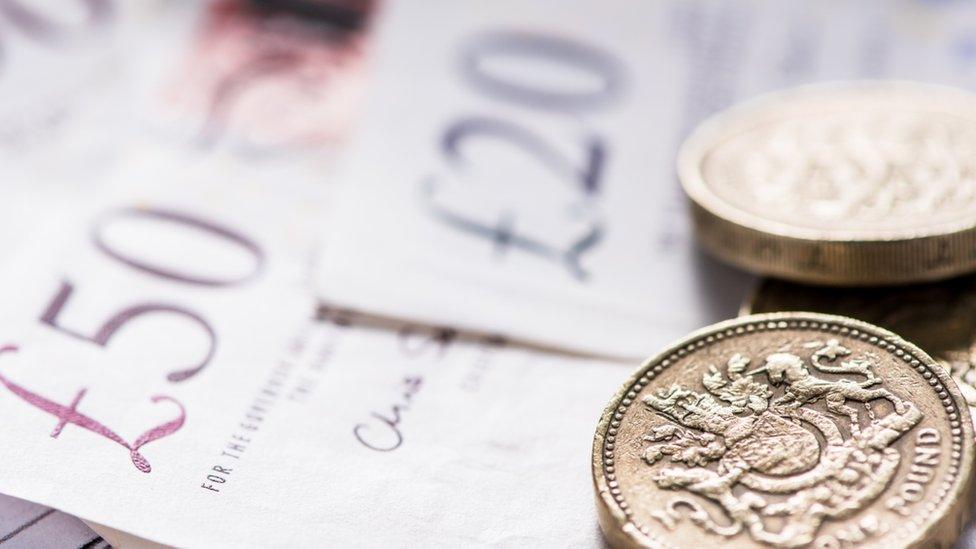Reality Check: Will the UK pay for future euro bailouts?
- Published

The claim: The Vote Leave campaign is claiming that "UK taxpayers will keep paying for the huge bills caused by the euro crisis" and that "these bills will only increase".
Reality Check verdict: The UK will not pay for future eurozone bailouts. This has already been agreed by EU leaders. In addition, the UK-EU deal from February, which will be implemented if the UK votes to stay in the EU, reinforces this and states that the UK would be reimbursed if the general EU budget is used for the cost of the eurozone crisis.
The Vote Leave campaign says on its website that "UK taxpayers will keep paying for the huge bills caused by the euro crisis" and that "these bills will only increase".
Former UKIP spokeswoman Suzannne Evans told Andrew Marr earlier on Sunday that the UK already has £9bn worth of loans from previous bailouts and, if the UK votes to remain in the EU, this would continue. She said it would be a green light to Brussels to do anything they like.
Is that true?
The first question to answer is how much the UK has paid towards the eurozone bailouts so far.
The UK has provided a total of €6.5bn (£5bn) via the EU for two bailouts: €3bn for Ireland in November 2010 and €3.5bn for Portugal in May 2011.
With both Ireland and Portugal now out of their bailout programmes, the UK has not lost any money supporting them at the peak of the crisis.
The UK has not made a contribution via the EU for the other eurozone bailouts: the three Greek ones, in 2010, 2012 and 2015 and for the Spain and Cyprus bailouts in 2012.
The UK has made further contributions, not because it was forced to do so by the EU, but because the IMF too provided loans for some of the bailouts. The UK's share of whatever the IMF provides is around 4.5% of the total. It amounts to around €4.5bn for all seven bailout mentioned.
In addition, in 2010, the UK provided €3.9bn in bilateral bailout loans to its neighbour and important trading partner - Ireland.
What has happened since?
In 2011 the EU leaders agreed that the UK, external and other EU countries which are not in the eurozone, should not be part of any future eurozone bailouts.
The eurozone has subsequently established a new bailout fund, paid for by, and benefiting, eurozone countries only.
In 2015, when the third Greek bailout was agreed, Greece was also given a short term bridging loan of €7bn from an EU-wide fund which can provide loans to any EU country in financial difficulty. The fund is financed by borrowing against the EU Budget. The UK would have been indirectly liable for around €855 million (£598m) of the loan, through its share in the EU Budget.
But the UK government agreed a deal with the EU under which the European Central Bank - i.e. eurozone countries only - would cover any liabilities that would have fallen to the UK or other non-eurozone countries. This meant that the UK and other non-eurozone countries were exempted from any risk of losing money in this emergency loan to Greece.
What would happen if the UK votes to stay in the EU?
As part of the EU-UK agreement, external, which David Cameron negotiated in February this year, and which will be implemented if the UK votes to stay in the EU, the UK, and other non-eurozone countries, have further guarantees that no EU-wide money can be used to help eurozone countries in crisis:
"Emergency and crisis measures designed to safeguard the financial stability of the euro area will not entail budgetary responsibility for Member States whose currency is not the euro, or, as the case may be, for those not participating in the banking union.
"Appropriate mechanisms to ensure full reimbursement will be established where the general budget of the Union supports costs, other than administrative costs, that derive from the emergency and crisis measures."
Finally, it is important to stress that the much bigger impact on the UK economy from a possible future deepening of the eurozone crisis comes from the inter-connectedness between the UK's and the eurozone's economies through our trade with them and banking, rather than the money provided for bailouts.
If the eurozone was to collapse, the negative economic impact would be felt in the UK regardless of whether it is in or out of the EU.



- Published3 June 2016

- Published21 March 2016

- Published23 May 2016
- Published22 February 2016
